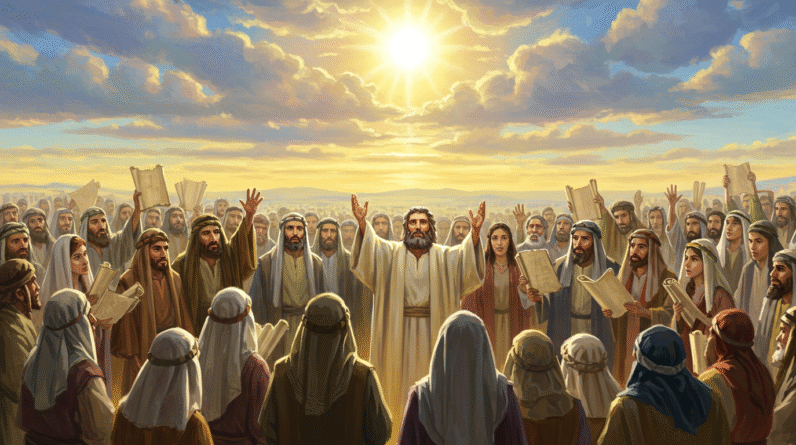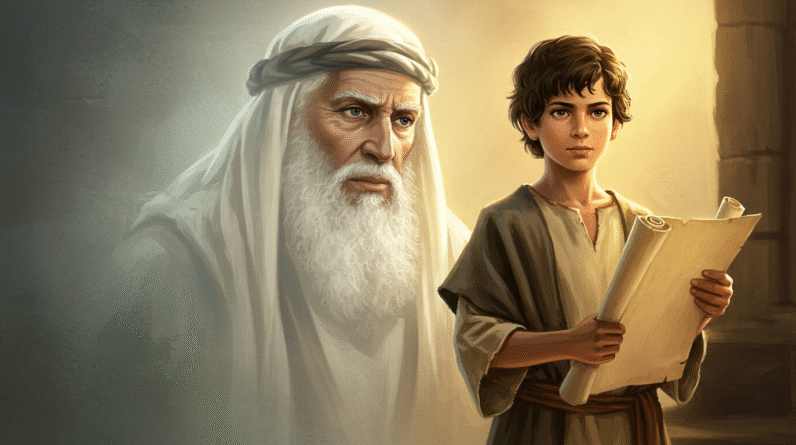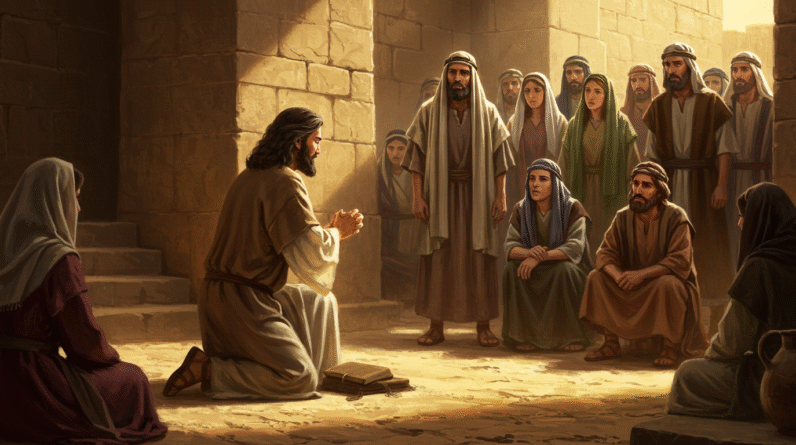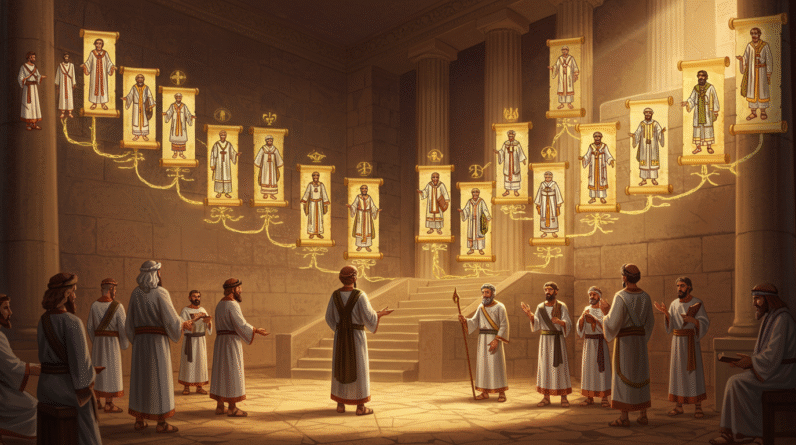Dive into the transformative journey of Ezra from Babylon to Jerusalem, exploring his pivotal role in Jewish history and the timeless lessons in spiritual leadership.
The Journey of Ezra: Unraveling the Story Behind Ezra 7:6
The whispers of history often echo more vividly through the pages of ancient texts than in any spoken tale. The biblical figure of Ezra is one such character, whose journey molded an era and whose legacy resonates through the corridors of spiritual wisdom. Ezra 7:6 tells of a scribe well-versed in the Law of Moses, journeying from Babylon to Jerusalem during a pivotal time in Jewish history. But who was Ezra, and why does his story continue to captivate scholars and believers alike? Let’s dive deep into the life and significance of this esteemed priest and scribe.
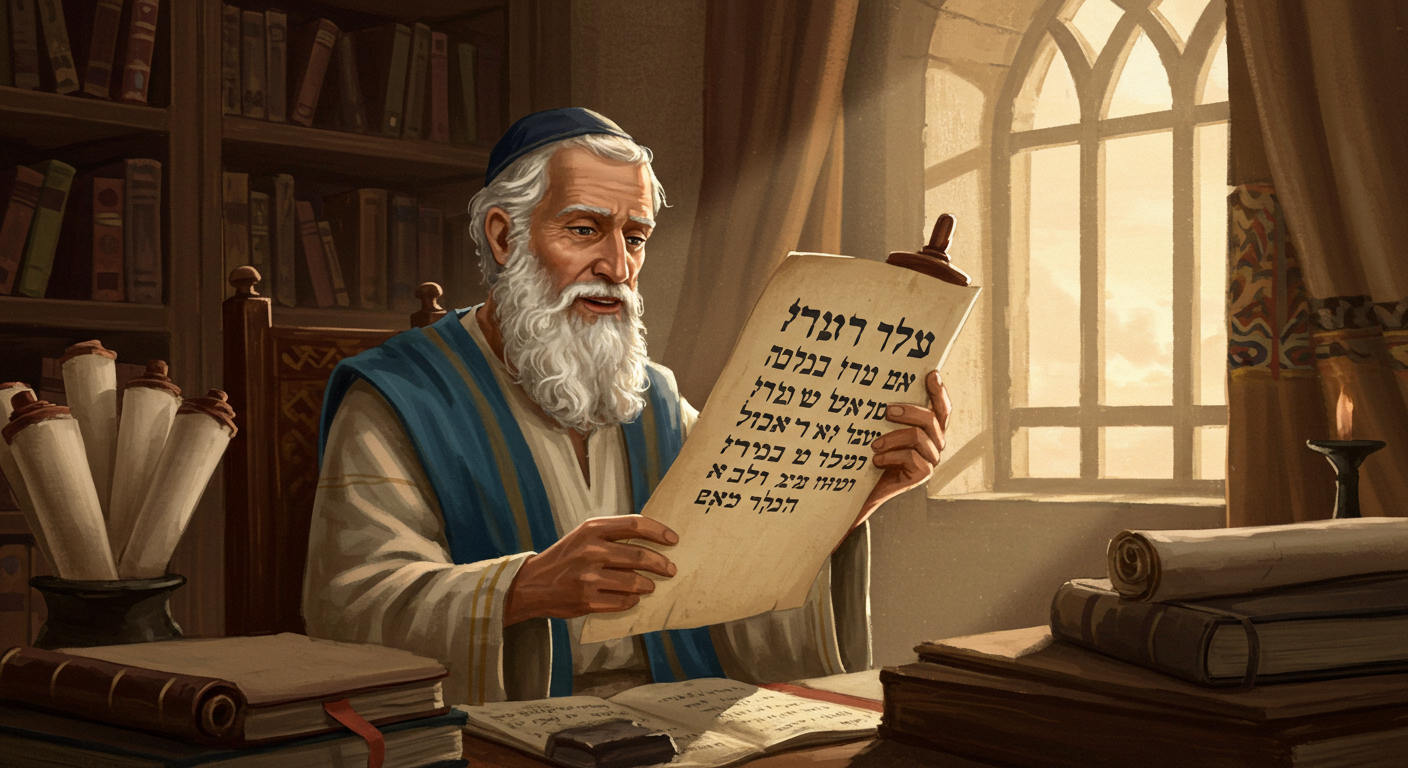
Who Was Ezra?
Ezra emerges from the tapestry of the Bible as a priestly figure, not bound by kingship, yet wielding immense spiritual and moral authority. His lineage can be traced back to Aaron, the brother of Moses, solidifying his priestly heritage and ensuring his role as a significant religious leader (Ezra 7:1-5). Working in the Persian Empire’s heart, Ezra was known as a “scribe skilled in the Law of Moses.” His life, however, was marked by more than just lineage and scriptural expertise.
Ezra lived during the reign of Artaxerxes I of Persia, a period post-exile when the Jewish people were on a journey of return and restoration. As a figure deeply embedded in the religious and civic revival of Jerusalem, Ezra was tasked with an extraordinary mission: to lead his people back to spiritual and covenantal fidelity. He was a conduit through which divine law was not merely preserved but actively reinstated in the social and religious fabric of Jerusalem.
Key Moments in Ezra’s Life
The pivotal events of Ezra’s life reflect his dedication to his faith and his people. One of the most defining moments came when he led a group of exiles from Babylon to Jerusalem, a journey detailed in Ezra 7:6-10. The passage tells of how “the king had granted him everything he asked,” signifying divine favor paired with earthly authority. This journey was not merely a relocation; it was a pilgrimage of renewal and reform.
Upon arriving in Jerusalem, Ezra encountered a community in spiritual disarray. The Israelites had mingled with the surrounding nations, compromising their distinct covenantal identity. Under Ezra’s leadership, there was a fervent return to the law. He orchestrated reforms, emphasizing the importance of observing the commandments as a means to restore the nation (Ezra 9:1-15).
Ezra’s public reading of the Torah, as found in Nehemiah 8:1-8, was another hallmark of his ministry. It was a moment of mass revival where the people publicly renewed their covenant with God. This event re-established the importance of the Scripture and the authority of God’s law in Jewish society.
Lessons We Can Learn from Ezra
Ezra’s life offers a treasure trove of lessons applicable to modern Christian living. Firstly, his unwavering commitment to God’s law underscores the importance of scripture in shaping faith and practice. Like Ezra, dedicating oneself to understanding and teaching God’s word can lead to personal and communal transformation.
Secondly, Ezra demonstrates the power of leadership founded on humility and service rather than authority and control. His leadership was characterized by a profound reliance on God, as evident in his period of fasting and prayer before embarking on significant decisions (Ezra 8:21-23).
Lastly, Ezra’s ability to lead a community toward renewal highlights the impact of collective repentance and reform. His life teaches that the pursuit of holiness is communal as much as it is individual, urging today’s believers to foster environments where faith can thrive collectively.
Biblical References & Context
Ezra’s story is primarily chronicled in the Book of Ezra, particularly chapters 7 to 10. A comprehensive contextual dive can be seen throughout these scriptures:
- Ezra 7:6: This verse underscores Ezra’s journey from Babylon to Jerusalem, highlighting his wisdom and divine favor.
- Ezra 9:1-15: Here, Ezra responds to the intermarriages of the Israelites with pagan nations, an act seen as a grave sin, emphasizing the need for spiritual purity.
- Ezra 10:1-6: Highlighting the communal act of repentance, this section describes the Israelite’s pledge to sever these ties and return to their vows with God.
- Nehemiah 8:1-8: Although not directly in the Book of Ezra, it shows Ezra’s influence in leading the people in a public reading and understanding of the law, reaffirming the scripture’s place in their lives.
Ezra in the Bigger Picture
Ezra’s role was not just confined to restoring the Jewish community of his time but also laying the groundwork for future understandings of scriptural fidelity. In the broader arc of biblical history, Ezra’s actions resonate within God’s larger plan for His people, particularly in paving the way for spiritual resilience that would echo into New Testament times.
His efforts in establishing a strong foundation for the Jewish faith directly impacted how the community would survive future challenges, including the ones during Jesus’ time. In many ways, Ezra’s life and times set the cultural and religious context that Jesus would later enter, making his contributions significant in the continuum of biblical history.
Furthermore, through Ezra, we can see an embodiment of God’s faithfulness to His covenant people. His story reminds us of the restorative power of turning back to God—a theme that Jesus amplifies, inviting all to reconciliation and spiritual rebirth.
Final Thoughts
Reflecting on Ezra’s story invites us to consider the timeless interplay between divine providence and human agency. His life and actions, chronicled so meticulously in the biblical narrative, serve as a testament to the enduring power of faith-led leadership, transformative repentance, and the pursuit of spiritual truth. Ezra’s journey challenges us to be faithfully proactive in our spiritual walks, encouraging a life of purpose grounded in scripture.
As we navigate our journeys, let us draw from Ezra’s example—our struggles and triumphs laid bare before a God who remains ever-focused on our restoration and reconciliation.
Acknowledgment: All Bible verses referenced in this article were accessed via Bible Gateway (or Bible Hub).


